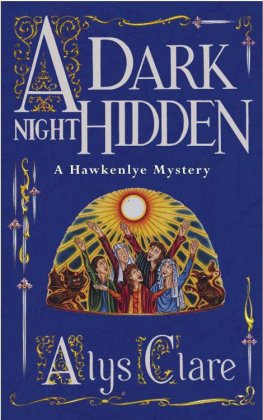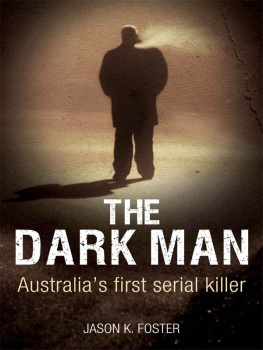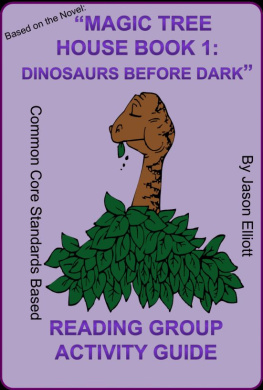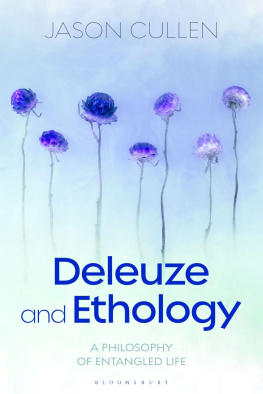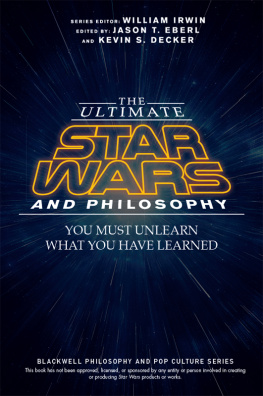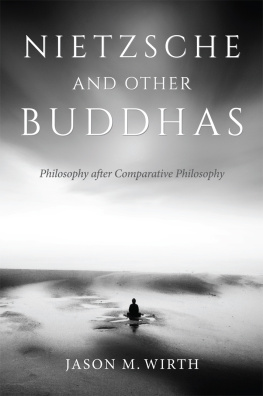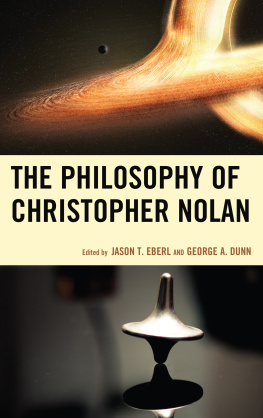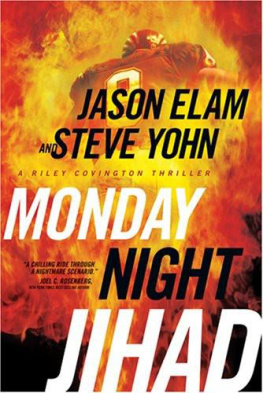Jason Bahbak Mohaghegh - Night : a philosophy of the after-dark
Here you can read online Jason Bahbak Mohaghegh - Night : a philosophy of the after-dark full text of the book (entire story) in english for free. Download pdf and epub, get meaning, cover and reviews about this ebook. year: 2019, publisher: Zero Books, genre: Romance novel. Description of the work, (preface) as well as reviews are available. Best literature library LitArk.com created for fans of good reading and offers a wide selection of genres:
Romance novel
Science fiction
Adventure
Detective
Science
History
Home and family
Prose
Art
Politics
Computer
Non-fiction
Religion
Business
Children
Humor
Choose a favorite category and find really read worthwhile books. Enjoy immersion in the world of imagination, feel the emotions of the characters or learn something new for yourself, make an fascinating discovery.

- Book:Night : a philosophy of the after-dark
- Author:
- Publisher:Zero Books
- Genre:
- Year:2019
- Rating:5 / 5
- Favourites:Add to favourites
- Your mark:
- 100
- 1
- 2
- 3
- 4
- 5
Night : a philosophy of the after-dark: summary, description and annotation
We offer to read an annotation, description, summary or preface (depends on what the author of the book "Night : a philosophy of the after-dark" wrote himself). If you haven't found the necessary information about the book — write in the comments, we will try to find it.
Night : a philosophy of the after-dark — read online for free the complete book (whole text) full work
Below is the text of the book, divided by pages. System saving the place of the last page read, allows you to conveniently read the book "Night : a philosophy of the after-dark" online for free, without having to search again every time where you left off. Put a bookmark, and you can go to the page where you finished reading at any time.
Font size:
Interval:
Bookmark:
What people are saying about the author
I have read two of Jason Mohagheghs books prior to reading this work and I find the latter very much in keeping with the authors remarkable voice and almost sui generis approach to and retrieval of contemporary non-western thought. He rather challenges the prevailing contours of philosophy, creatively and philosophically rethinking not only what matters to philosophy but also how philosophy can matter.
Jason Wirth, Professor of Philosophy, Seattle University
Night emerges as an intellectually unique and methodologically courageous work...The authors stylistic and methodological novelty is a great advantage, for it gives the reader, at one stroke, the chaotic and multidimensional universe of culture, and increasingly the world in which we live. It gives us not a clear and transparent unity, a structure, but an ever-changing, fractal cosmos, and invites the reader to follow the trace of the affect in the everyday.
Mahmut Mutman, Professor of Cultural Studies, University of Tampere
Night
A Philosophy of the After-Dark

First published by Zero Books, 2019
Zero Books is an imprint of John Hunt Publishing Ltd., No. 3 East St., Alresford,
Hampshire SO24 9EE, UK
www.johnhuntpublishing.com
www.zero-books.net
For distributor details and how to order please visit the Ordering section on our website.
Text copyright: Jason Bahbak Mohaghegh 2018
ISBN: 978 1 78904 277 1
978 1 78904 278 8 (ebook)
Library of Congress Control Number: 2018961966
All rights reserved. Except for brief quotations in critical articles or reviews, no part of this book may be reproduced in any manner without prior written permission from the publishers.
The rights of Jason Bahbak Mohaghegh as author have been asserted in accordance with the Copyright, Designs and Patents Act 1988.
A CIP catalogue record for this book is available from the British Library.
Design: Stuart Davies
UK: Printed and bound by CPI Group (UK) Ltd, Croydon, CR0 4YY
US: Printed and bound by Thomson-Shore, 7300 West Joy Road, Dexter, MI 48130
We operate a distinctive and ethical publishing philosophy in all areas of our business, from our global network of authors to production and worldwide distribution.
For my wife, the anesthetist, the chef, master of substances, beside whom all nights attain their perfect oblivion.
To study Night, one must stare into what one already realizes intuitively as a paradoxical object: that Night is where horror thrives, and also infatuation; that Night hides certain acts, but that things are also said to come out at night; that we are surprised and caught off-guard by its sudden noises, while also recognizing its calm familiarity; and that even Nights mythological child Sleep is no safe bet, dualistically bringing both dreams and nightmares, meaning and nonsense, to the oblivious mind. Beyond this, we must engage Night through the varying prisms of its most fascinating practitioners: namely, those who keep strange hours and navigate the different potentialities of nocturnal experience (both of terror and enchantment). For the criminals relation to the dark (fugitive, dealer, prowler) is not the same as the wanderers relation (nomad, sojourner, sleepwalker), nor the many other sub-identities whose survival relies upon a certain exact mastery of Nights formulas and upon learning its conceptual-experiential relations to time, space, fear, nothingness, desire, death, forgetting, enigma, solitude, sensation, vision, secrecy, monstrosity, and the body. To stay vigilant and wakeful throughout; to keep watch while others close their eyes.
Night brings revolution against the archetypal. It overthrows the dominant hierarchies and universal myths in favor of the beautiful disarray of the masquerade or bonfire. It is where one fathoms otherwise, the time-space of the visionary, the imaginary, the unreal, the unknown, the elsewhere, the outside, and the emergent. It is where one first builds machinations of radical thought, letting fall those droplets of mad and dangerous consciousness. The governing categories of human existence are suspended for the meanwhile, and in their place pour forward the semblances of alternative classifications and diagrams (banned libraries, archives, catalogs, arrangements).
There has been an ancient war across the fields of philosophical inquiry, and in this violent conflict two diametrically-opposed sides: on the one front, those movements aligned with perceiving philosophy as enlightenment, and thus inescapably tied to discourses of truth, absolutism, and idealism that would render ours a radiantly serious, legitimate discipline. Tradition, structure, reason, and systemic orders of the mind follow in their wake; and on the other front, those movements aligned with perceiving philosophy as dark trek, and thus inescapably tied to discourses of chaos, exception, obscurity, and fragmentation that would render ours a deviant, criminal enterprise. Originality, distortion, tremor, and rogue speculation follow in their wake. For one alliance, the light promises a certain stability of Being (desire for groundedness); for the other alliance, the night provides gateways and trajectories of becoming (desire for flight or freefall). In this way, it is a war between the throne and the open sea, a war between significance and the ingenious manipulation of meaning within the folds of pure meaninglessness. The conceptual schism between day and night therefore marks the existential border between those with a pathological need to rule and those with a diabolical impulse to abandon, subvert, and reinvent the game of mortal experience.
Night is that unique lottery where anyone can win a crucial round, fulfilling otherwise impossible transactions of fortune/plot if only capable of the right subterfuge. It is where unforeseen cunning triumphs over sober intelligence, where the will to play is rewarded with momentary lawlessness. It is where the guilty are gifted another innocence, and the gods turn blind eyes to those disturbing their cosmos with the gamblers dice. Night thus uproots the origin and installs luck as the new progenitor; it equalizes the board/arena for all malevolent contenders, parting skies for a short epoch of temptation, wonderment, and ecstatic violation of our finitudes limits. It is not the upper air of the sacred promise, but rather the breath of profane eternality lasting only a few stolen hours. It is the site of erased debts and ultimate risk for those with both nothing to lose (desperation) and everything to gain (quest). For this reason, the night is precisely where we perish interminably and yet can never die.
Night is also the time of weeping or celebration for the grand mistake of existence. Creation as error; Being as error. That this should never have happened; that this happened all wrong. That we transpired against odds and intention, in spite of essential forces; that we constitute both symbolic and material offense with every continued breath. Hence night furnishes the precipice across which humanity can take its own insulting presence over and beyond, testing the journey unto a miscalculations endpoint; it collects tribute for the inexcusability of our arrival herein. Some choose laughter as their vehicle, some choose lament, but all move toward the outer threshold of seeing this fault throughonce and for all (the vengeful unwanted). Night thus restores awareness of the longevity of our bondage, and the bondage of our longevity.
Next pageFont size:
Interval:
Bookmark:
Similar books «Night : a philosophy of the after-dark»
Look at similar books to Night : a philosophy of the after-dark. We have selected literature similar in name and meaning in the hope of providing readers with more options to find new, interesting, not yet read works.
Discussion, reviews of the book Night : a philosophy of the after-dark and just readers' own opinions. Leave your comments, write what you think about the work, its meaning or the main characters. Specify what exactly you liked and what you didn't like, and why you think so.

